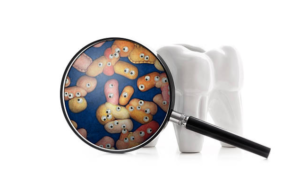
There are many reasons to take care of your oral health. It is important to take care of your teeth so that you can chew, talk, and smile. Maintaining good oral hygiene is also essential to preventing conditions such as cavities and gum disease.
Did you know that your oral health also plays an important role in preventing cancer? There is an undeniable link between gum disease and cancer. Studies have shown that gum disease not only affects your oral health but has also been linked to cancer. Whenever you have been referred to a periodontist for an evaluation, you should make an appointment as soon as possible.
Tufts University School of Medicine and Johns Hopkins Bloomberg School of Public Health researchers conducted a study that found advanced gum disease is associated with an elevated risk of cancer.
It is common for Americans to suffer from dental diseases such as cavities and gum disease. More than 80% of adults have at least one cavity by the age of 34, and 46% of adults aged 30 and older show signs of gum disease, according to the Centers for Disease Control and Prevention (CDC). Dental plaque contains bacteria that produce acids that damage tooth enamel, causing cavities. Without treatment, tooth decay can lead to severe gum infection, which can spread to other parts of the body. Gum infection, or gingivitis, can lead to a more serious condition called periodontal disease, which results in loose gums, bone loss, and tooth loss. More than 70% of adults age 65 and older suffer from periodontal disease. Poor oral hygiene, diabetes, a weakened immune system, and heredity are factors that can contribute to periodontitis.
According to a new study published in the Journal of the National Cancer Institute, periodontal disease and cancer risk may be linked. Previous studies have found that advanced gum disease may increase cancer risk by 14% to 20% due to changes in immune response or the spread of harmful bacteria, but the authors of this study say previous studies have been limited. The authors highlighted the public health implications of oral health in light of the prevalence of periodontal disease.
Researchers analyzed dental data collected from 7,466 participants enrolled in the Atherosclerosis Risk in Communities study in the late 1990s and followed until 2012. During follow-up, there were 1,648 cancer cases among study participants and 547 cancer deaths. Compared to participants with mild or no periodontitis, those with severe periodontitis had a 24% increased risk of developing cancer. In the study, participants without any teeth had a 28% increased risk of total cancer and an 80% increased risk of colorectal cancer. Those with severe periodontal disease had a doubled risk of lung disease.
According to first author Dominique Michaud, ScD, in a recent press release from Tufts University School of Medicine, this is the largest study looking at the association between gum disease and cancer risk using dental examinations to measure gum disease before cancer can be diagnosed. Michaud also noted that previous research has identified bacteria associated with periodontal disease in colorectal cancer tissues. More research is needed to evaluate whether periodontal disease prevention and treatment may reduce the number of cancer deaths.
According to the CDC, Americans spend over $113 billion a year on dental care, and they lose more than $6 billion in productivity as a result. Periodontists recommend brushing twice a day with fluoride toothpaste, flossing, drinking fluoridated water, and avoiding tobacco products to maintain good oral hygiene.
Our periodontist in Alexandria VA wants to ensure that your overall health is taken seriously. Contact our Alexandria Periodontist today to schedule an appointment.










